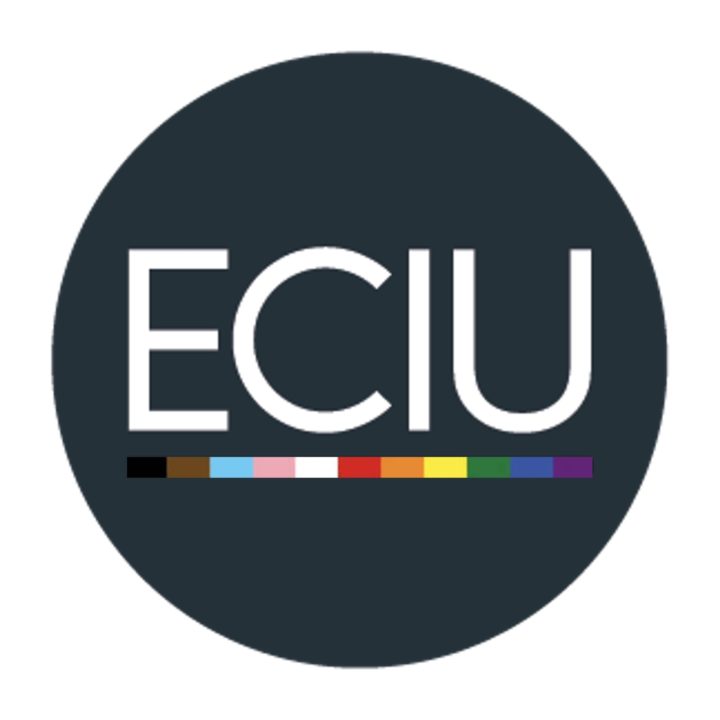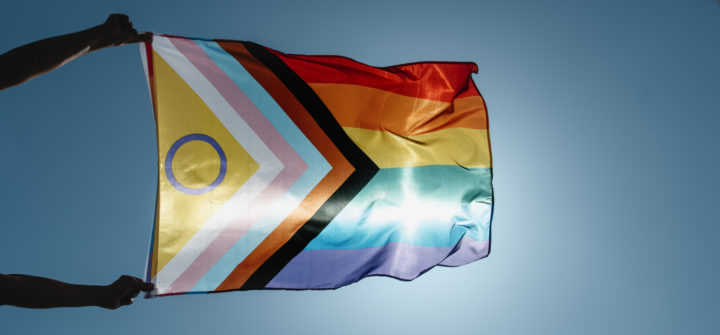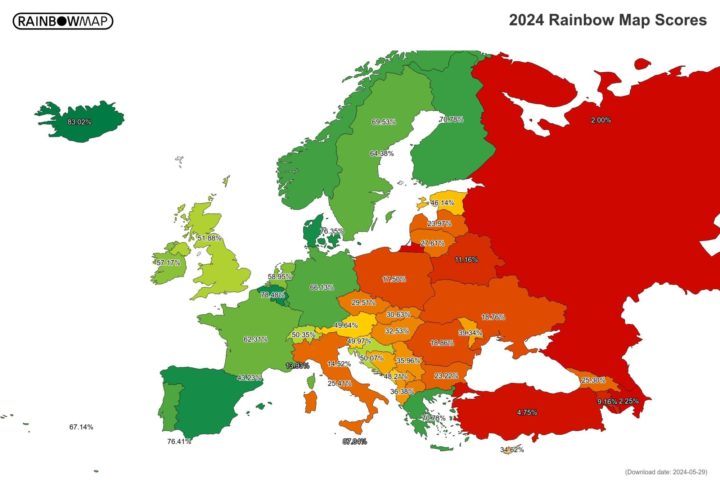Pride Month: why diversity and inclusion matter
As ECIU supports Pride Month, we look at why diversity and inclusion are important to us, and indeed to all organisations which want to succeed.

By Gareth Redmond-King
@gredmond76Share
Last updated:

June is Pride Month, and ECIU has added the progress pride colours to our social media logo for the month.
For most, many – maybe all – organisations that do this, it tends to prompt at least some responses along the lines of ‘what’s this got to do with the day job?’, ‘isn’t this just virtue-signalling?’ and/or ‘why do we even need Pride’?
So let’s pick through those.
Core to the mission?
On the first one; being open, inclusive and encouraging diversity is vital for every organisation, whatever its core function, or ‘day job’. Any organisation that is committed to its mission wants to be able to attract and retain good people to enable them to deliver it. If you’re open, inclusive and you value diversity, then your doors are very clearly open to the brightest and best people, no matter their background, circumstances or identity.
ECIU is here to inform the debate on climate and energy – we want to be sure that our team is made up of the best people to help us do that, whatever their background. That is why we take part in the Diverse Sustainability Initiative. Recognising that the sector we work as part of is one of the least diverse in the country, we are actively trying to recruit from and retain a more diverse mix of people, so as better to represent the society in which we exist and work.
Culture of support
But, as important is the value of diversity of thinking and ideas in an organisation. Without diversity of voices, backgrounds, experience, knowledge, you create echo chambers. When everyone in an organisation agrees with one another, they can miss important things. Depending on who you are, that can mean you put something embarrassing in an advert that costs you money and reputation (see Nivea, Heineken, Pepsi, Snickers and even the recent Apple iPad ad). Or worse, it can mean you develop products only for people like you, which can end up actively unsafe for half the global population (see Caroline Criado-Perez’s Invisible Women for multiple examples of how women are exposed to this).
The culture of an organisation is also important to how successful it can be. It’s one thing to value the strength that comes from diversity, but to reap the rewards of that strength, you need people to be able to be open and comfortable in their workplace. That includes being able to be open with colleagues, customers and collaborators about who you are – about all aspects of yourself. Expending time, effort and emotion on hiding your sexuality or your gender identity, for example, takes up a lot of energy. A high-performing organisation surely prefers that energy to be channelled into delivering to our fullest potential, and leaving staff able to perform to our very best.
Sending signals

On to virtue-signalling, then. If, as an organisation, you are open and inclusive and value diversity, then it is actually quite a good idea to publicise that.
When people – particularly younger people – are looking for jobs, they are looking to work for organisations that are diverse, open and inclusive. So much so, that many will place it higher than the relative salary level in that organisation, compared to others. That makes diversity a virtue which is well worth signalling.
So why do we need Pride?
Well, we still live in a world in which 64 countries criminalise being gay; in 12 of those (including the host of last year’s UN climate summit), it can carry the death penalty. 14 countries also specifically criminalise the gender identity and expression of trans people.

But not the UK, right? No, but on ILGA-Europe’s assessment of European countries’ laws and policies that have a direct impact on LGBTQ+ people’s human rights, the UK has slid down the rankings of late. In 2015, we topped the rankings, scoring 86%; in 2024, we are in 16th place, with a score of just 52%.
During that time, not only has government rowed back on promises to ban so-called conversion therapy, and to allow self-ID for trans people, but politicians on all sides, and a small but vocal media and campaigning minority have promoted culture war attacks on LGBTQ+ people, particularly trans people. Hate crimes on the basis of sexual orientation are up 112% in the last five years, albeit with a slight fall of 6% last year. Hate crimes against trans people are up 186% over the last five years, and rose 11% last year. Those numbers are directly connected to the political narrative, and how that plays out in social media. And whether we experience it personally or not, it leaves those of us who are queer feeling less safe, and less able to be open about who we are.
Pride month and public opinion
So, whilst it is always a good time for an organisation to signal – and mean – that it is committed to diversity, inclusion and equality, Pride Month is an important time for organisations to signal very clearly that this means LGBTQ+ people too. Not least because Pride Month falls, this year, during a general election campaign, when things get more feverish than normal. And as with climate polling – where the public is much more supportive of action to tackle climate change than some politicians and media would have us believe – so too with views on LGBTQ+ rights.
In 2022, two thirds of British people believed same sex relationships are fine, where just 40 years earlier, half thought they were always wrong. A similar proportion – 64% - described themselves as ‘not prejudiced’ against trans people, and in-depth polling shows Britons are not polarised on trans rights.
But opinion can follow the political narrative, rather than lead it, and there’s danger in a silent majority starting to believe the rhetoric of a vocal minority. Which is why we still need Pride Month, and why there’s value to all of us in supporting it.

Share